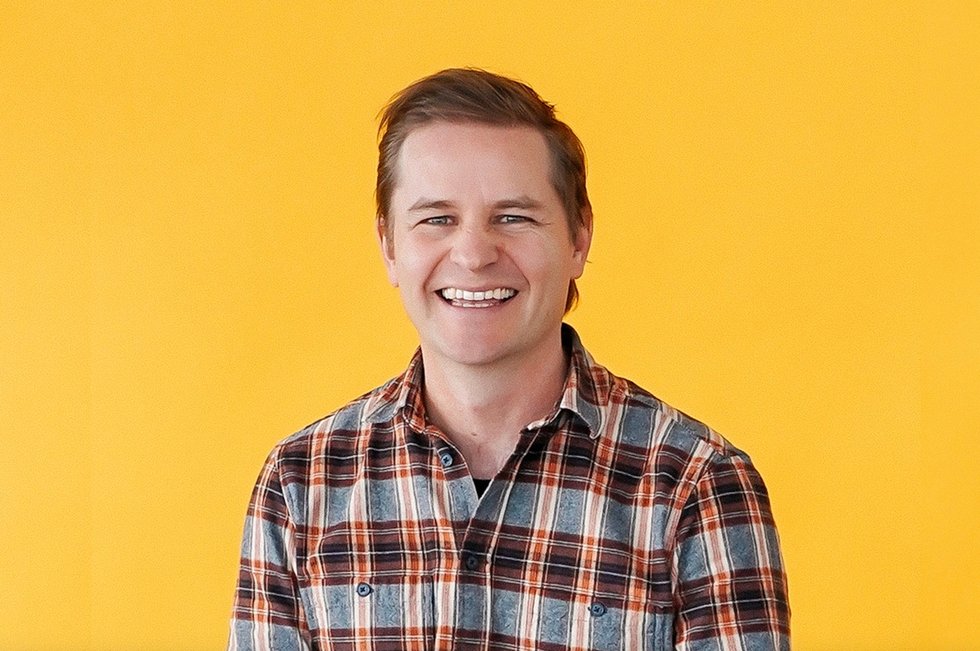Meet the CEO making tech careers available to everyone
Feb 01, 2023
9 mins


Freelance writer, reporter
Changing careers is difficult – especially if you are looking to break into the tech world. But Martin Ramsin is working hard to make that process easier for anyone, regardless of their background. Ramsin – who is originally from Sweden and spent time working in San Francisco – is founder and chief executive of the Berlin-based CareerFoundry, an online school that facilitates career changes into the tech industry but with more of a human touch than a typical tech “bootcamp.” Founded in 2013, CareerFoundry has already put more than 10,000 students through its training in such areas as full-stack web development, user experience (UX) and interface (UI), digital marketing, and data analytics. Career change programs cost from $6,900 to $8,500. Students can take classes remotely on a schedule that works for them and many of its graduates have gone on to work at big companies such as Apple, Google, and BBC.
Part of Ramsin’s mission is to address diversity and inclusivity, which the field has historically (and notoriously) lacked. CareerFoundry opens up opportunities for those who have been sidelined in the tech field: women, people of color, low-income individuals, and others from marginalized communities.
With the World Economic Forum’s Future of Jobs report predicting that 50% of employees will have to reskill by 2025, CareerFoundry’s offering is more relevant than ever, and the company is seeing unprecedented demand as a result.
Can you offer some background on how you started CareerFoundry?
We started Career Foundry almost nine years ago with the idea of helping people to build a career they love. Prior to starting this company, I had taken an online course myself and I thought it was a bit lonely and isolating. So, I wanted to set out to prove that online learning could also be human-centric – with people involved, rather than just me and my computer.
So, we built these courses for web development and design, bringing in mentors so they had a human element. We noticed pretty quickly that the people who responded well to this approach of human-centric online courses were people trying to break into the tech profession. We realized that people making career transitions were our customer group, so we’ve been catering to them ever since.
Today, our typical customer is somebody who has been stuck in their career for a while, so they tend to be 25 or older. They’ve worked for a couple of years already in a profession or a career in which they didn’t feel like they had a future, which could be for a variety of reasons. Often, we hear things like “I’m not able to be creative,” “I need more flexibility in my life,” “I want to have more impact with what I do”, or “I just need to make more money or have a more future-proof career than my current one.”
And how does CareerFoundry work to level the playing field for people interested in its courses? Are inclusivity and diversity a big focus?
Being inclusive is one of our core values. Today, more than 50% of our students are women, which is unusual in this field. We release a diversity report every year with the details of our team – our instructors and all of our students – which encourages us to improve over time.
The reason why we are attracting people from marginalized groups is because CareerFoundry operates online and it’s very flexible. Anyone can take these classes from anywhere, opening them up to groups of people who historically haven’t been able to go back to school in the more traditional sense.
This might mean people who have children, like I do, which can make it more difficult to go back to a 9-5 type of school. Or maybe people who are caring for elderly relatives, or who are limited by location: lacking good, affordable education systems or job opportunities nearby. These are just some of the common barriers that exist, so the fact that we’re online and flexible has enabled us to garner a wide breadth of students.
CareerFoundry also makes it possible to make a career change while you are still at your current job. You don’t need to quit and then work out how to change your career. I think this is a big deal because if you need to leave your job in order to make the switch, which was the case with your typical bootcamp style, it’s a bigger risk. You’re going all in on this career change, and if it doesn’t work, you’re left in a bad situation. It’s also more stressful trying to reskill or switch industries while not having a salary.
Would you say that CareerFoundry opens up opportunities for people in, say, developing nations who might want to break into tech?
It happens in a small way since we are accessible from anywhere, however there are often big barriers when it comes to price and language. These barriers are something we are working hard to overcome, because the end goal for us is to enable this type of career change for anyone on the globe.
People in developing nations probably need services like the ones we provide the most, as they usually don’t have actual access to get a foot into the tech job market. However, because of both financial and business reasons, it’s not exactly a simple thing to reach them.
You’ve said that you believe the college degree might be extinct one day. Can you elaborate a bit on your thought process there?
I think college degrees will coexist with new alternatives, like CareerFoundry, for a long time, and I don’t actually think they will be extinct any time soon. What I do think is that at some point that type of model of education will become outdated, because in the end, it’s just too expensive.
With online education, you can use technology and software to improve it and make it cheaper over time and more scalable, which is not possible with bricks and mortar. For the next, my guess would be, 50 years, we will still have colleges, but they can coexist with online options.
It’s great that there are now options for online schooling that can be an alternative to college, because college is not for everyone. Online schools can provide an alternative for those who aren’t able to physically attend school; for example, if they live with a disability or are unable to move around freely, as well as for those who simply don’t want to go.
Is the tech industry becoming more interested in seeing someone’s experience than looking at what kind of bachelor’s degree they have?
Oh yeah, this is definitely happening. In the tech industry, employers care less and less about degrees and look more at what job candidates actually can do. And I think that has been embraced by the students at CareerFoundry; they develop a portfolio of work that acts as proof of their skills, and then they go with that to tech employers. Tech employers seem to be looking less and less at degrees, which I think is really positive because it opens up opportunities for groups of people who would otherwise not be able to work in the industry.
With diversity being a huge problem in tech in general, it’s good to add more groups of people into the field. Tech overall is becoming so important for us humans, for society, and it’s infiltrated everything. It’s important that there is diversity there because it needs to represent the whole of humankind. I’m not trying to solve everything here with this company, but I do think it’s important to mention. I personally feel like core tech apps – such as Facebook etc – would’ve been much better had they been built by a truly diverse team.
Why do you think people might be attracted to the tech industry, aside from feeling stuck in their current roles?
People nowadays think of themselves as not fixed in one career. They want to have multiple careers during their lifetime. I think that’s an exciting and cool thing. Tech jobs offer all of those things I mentioned in the beginning: the ability to be creative and to work flexibly, which is something a lot of people are looking for. Plus, it gives you the ability to have an impact in what you do. I see younger people especially increasingly looking for work that allows them to have an impact. In tech, they really can do that. Plus, of course, there are other appealing factors, like the pay slip at the end of the month and job stability. We have seen a lot of news recently of tech companies making layoffs, so it’s not like we’re immune to that, but I think if you are a designer or an engineer or a data scientist, you are always going to find a job.
Interestingly, a lot of the new tech jobs are actually in medicine, in education, in farming, in all kinds of places where tech is being used more and more. I think it’s just very inspirational the way that people are able to work in tech companies; there are lots of roles that are not super techy anymore, as it’s not only core engineering types of work. This means that the industry can even appeal to those people that aren’t ‘core’ tech folks.
When it comes to CareerFoundry, what sets it apart from other reskilling bootcamp-type programs?
Our focus on inclusion is how we stand out, as well as the fact that we take our work very seriously. We build all our courses in-house with the help of subject matter experts and we offer a lot of support for students, with each student given a dedicated team that supports them throughout the 10-month course that it takes to change careers. Every student is given a tutor, a mentor, and a career specialist who works with them on a one-on-one basis throughout that time, which is unlike most other programs.
Something else that sets us apart is that we help people to find a job at the end of their course, and we have a job guarantee as well. If you don’t find a job, you get your tuition money back – but that rarely happens, thankfully! Ultimately, just our commitment to career changing and to inclusion is what, I hope, makes people choose CareerFoundry.
What are the most drastic career changes you’ve seen? I know a priest-turned-web-designer is one example…
Yeah, the priest, that’s a famous case! We’ve also seen nurses that become UX designers, or taxi drivers that become web developers.
Another example is a group of students from Palestine who wanted to shift their careers toward web development. They gathered together in a group of 20 or so and got a better price that way, as a group. Then there are people from other countries, or from remote places where there are no jobs – or very few jobs – and they managed to get into the tech industry. It’s kind of cool to see the lives transformed by our programs.
CareerFoundry works in partnership with the German government, is that right? How does that work?
We have a program for unemployed individuals in Germany. If you’re based in Germany – I think you need to have worked for one year, but you can be of any nationality – then you are eligible to take our career change courses free of charge, sponsored by the German government. It’s a pretty neat program. Many unemployed people find us through this program and get into the job market. It’s a win-win for everyone.
I read that personalization is at the base of what CareerFoundry does. Can you explain what that means?
What we mean is that the experience is personalized for each student, with a team catering to each of them. It’s very helpful because making a career change is a very scary thing to do if you think about it [because you’re] starting from scratch again. So, each student having one-on-one time with instructors is key. We have a community of a couple of thousand people who are changing careers all at the same time, and that also creates a good support network, but there’s always going to be a feeling of imposter syndrome at one time or another during those 10 months. The support is super important to have, and often our tutors are former students, so they can relate to the current students on a direct level.
I think at the heart of our “personalization” aspect is that we think of every student as an individual. Everyone has their difference in needs, and we try our best to cater to all of them at a personal level.
What would your advice be to someone looking to leave their field to pursue a career in tech?
Well, I guess first of all, my advice would be to do a bit of research about the different types of roles on offer in tech companies. For example, there is your typical web developer, there are design jobs, and there are also roles in marketing or product. Some of those roles require more math skills, others require more communication skills. A UX designer, for instance, is a role in which you’re trying to talk to users of your product and figure out what needs they have so that the engineers can build features for those needs; that’s a good role for people who are adept at talking to people and getting them to open up. That’s also a less ‘techy’ role, which is why it’s probably our most popular course, along with a data analytics class.
When you have decided on the type of tech role you want, you should make sure you have the space in your life to actually make the career change happen. For instance, do you have the ability to set aside, say, 15-20 hours per week to do this for 10 months? That might require some lifestyle and commitment changes. Do you have support from your family or partner? Because you might need some moral or emotional support during this time. I would really think through your life situation and make sure you have the capacity to do this, right now.
And then the last thing I would say is: just start. Once you’ve considered the things above, there’s no point procrastinating. There’s never going to be a better time, and we only live once, so it makes sense to get going because it’s not going to get any easier in the future.
Photo: Martin Ramsin
Follow Welcome to the Jungle on Facebook, LinkedIn, and Instagram, and subscribe to our newsletter to get our latest articles every day!

More inspiration: Career switch

The people behind TikTok’s #iquitmyjob movement
Three creators tell the story of why they quit their jobs, and why they let millions of people see it online.
Sep 06, 2022

How honest should you be when quitting your job?
Handing in your notice can be a necessary decision. But should you always tell the truth about your reasons?
Jun 21, 2022

Seth Jaffe changed careers 7 times. Here's what he learned
Jaffe has made a career out of, well — changing careers. How did he do it?
Jun 13, 2022

Should you quit your job, or quit your environment?
Quitting your job can be a difficult but necessary decision. So how do you know if it's the right choice? A Florida-based career coach weighs in.
May 19, 2022

The Boomerang Boom: how to go back to your former employer
As the big quit continues, we’re seeing another trend: the boomerang employee. We have some tips to help you with ‘the Great Return.’
May 12, 2022
The newsletter that does the job
Want to keep up with the latest articles? Twice a week you can receive stories, jobs, and tips in your inbox.

Looking for your next job?
Over 200,000 people have found a job with Welcome to the Jungle.
Explore jobs